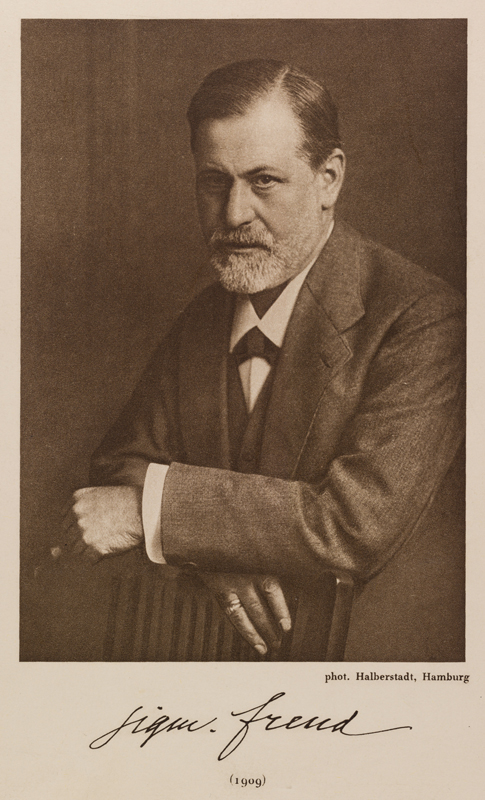Freud, widely recognized as the father of Psychoanalysis, was born on May 6, 1856, and began his practice as a psychoanalyst in Vienna at the end of the 19th century, a period when scientific positivism prevailed in Europe. Positivism, as a philosophical movement, emphasized the importance of empirical observation and science as bases for human knowledge.
In this context, Freud emerged as a disruptive figure, challenging the prevailing conceptions about the human mind, marking the beginning of an intellectual revolution that would reverberate through the 20th century to today.
In 1900, he published The Interpretation of Dreams, a text that, although written in 1899, was released at the turn of the century, representing a milestone for a new era. Freud was deeply convinced by what his clinical experience revealed. What was his great discovery, and does it remain relevant to this day? How can we think about Psychoanalysis in the face of so many changes and innovations in the 21st century?
Unconscious Desires
Freud’s main contribution was to attempt to show that ‘the ego is not master in its own house’, meaning that most of psychic life is unconscious, governed by the force of drives rather than reason. This idea directly challenged the beliefs of the time. Just as Copernicus displaced the Earth from the centre of the universe and Darwin showed how the human being appeared as a result of the process of evolution, Freud questioned the idea that we have absolute control over our lives. This was humanity’s ‘third narcissistic wound.’
 Freud developed an unprecedented understanding of dreams, revealing that dreams are hidden expressions of unconscious desires, and emphasized the importance of early childhood years in understanding future behaviours. He also challenged concepts related to human nature, arguing for the early existence of sexuality in children, the importance of sexuality in the formation of neuroses, and the existence of a dualism of drives, comprising of the life and death drives. He stressed the need for the life drives to prevail over the destructive forces of the death drive. These ideas faced strong resistance as they diverged radically from the predominant thinking of the time.
Freud developed an unprecedented understanding of dreams, revealing that dreams are hidden expressions of unconscious desires, and emphasized the importance of early childhood years in understanding future behaviours. He also challenged concepts related to human nature, arguing for the early existence of sexuality in children, the importance of sexuality in the formation of neuroses, and the existence of a dualism of drives, comprising of the life and death drives. He stressed the need for the life drives to prevail over the destructive forces of the death drive. These ideas faced strong resistance as they diverged radically from the predominant thinking of the time.
Freud also revolutionized his therapeutic approach by privileging ‘psychic’ reality over ‘objective’ reality, providing a new understanding of the human condition, and highlighting the relevance of fantasies and unconscious experiences.
Unlike traditional medical practice, Freud proposed that symptoms are (unsuccessful) attempts to solve unconscious conflicts, which require a thorough approach to understand and manage properly. Psychoanalysis does not prioritise the eradication of a symptom. Symptoms tend to disappear as a result of treatment, indicating that something about the subjective position of the patient has changed throughout an analysis.
Civilization and Its Discontents
In his text Civilization and Its Discontents (1930), Freud identifies three sources of displeasure: the frailty of our bodies, the superior power of nature, and human relationships, emphasizing that unease is an inherent structural condition of life in society. To live in a civilization, we must give up our individual desires for the sake of social coexistence. Happiness for Freud can only be felt intermittently and episodically.
“We are so made that we can derive intense enjoyment only from a contrast and very little from a state of things. Thus our possibilities of happiness are already restricted by our constitution. Unhappiness is much less difficult to experience.” (Freud, Sigmund. Civilization and its discontents, 1930)
Such ‘full’ happiness is an illusion; human beings are inherently marked by lack. However, it is this lack that makes life interesting, as it is from lack that desire can emerge. Desire drives the subject to achievements.
For Freud, there is no single formula for happiness, and this underscores the uniqueness of each individual in pursuit of well-being. Multiple paths can lead to happiness, recognising that inevitably there will be sacrifices along this path.
The Talking Cure
Faced with intense unease, modernity has placed its hope in the pharmaceutical industry, seeking a quick and effective solution to humanity’s sufferings such as depression and anxiety. However, clinical experience in consulting rooms indicates that while medication may help alleviate symptoms, it does not address the reasons for the unease, which is something subjective and unique to each individual. Despite their function, medications do not replace the need to deal with the underlying causes of unease.
Freud inaugurated “the talking cure”, in which the analysand is encouraged to freely associate while the analyst listens without judgment and without guiding their speech. Throughout the analytic process, the transformative power of words allows for the symbolisation and re-signification of past experiences that underlie inner conflicts, thereby reducing the suffering of those seeking analysis.
Not promising quick and superficial solutions, psychoanalysis offers a space for the subject to deal with their unease, allowing them to chart their path, find something that circumvents their unease and recognise and assert their desire.
In the postmodern era, while parallel innovations such as Neuroscience and Artificial Intelligence emerge, the space for psychoanalysis remains vital, as what it offers is uniquely singular, rich, and complex. Although neuroscience provides valuable insights into the brain processes underlying mental phenomena, psychoanalysis transcends purely neurobiological explanations.
Neuroscience and artificial intelligence do not address broader issues related to subjectivity, human experience, and the complexity of interpersonal relationships, which are central concerns for psychoanalysis.
The profound changes in the socio-economic and cultural context since Freud’s time have resulted in variations in symptoms and forms of suffering over time, but psychoanalysis continues to advance. It uses Freud’s pioneering concepts as a reference to examine contemporary phenomena and symptoms.
Freud’s understanding of the human psyche is as significant today as it has ever been, and psychoanalysis remains relevant and valuable to this day as the primary form of treatment that addresses the singularity and complexity of human subjectivity.





Comments
Great text!